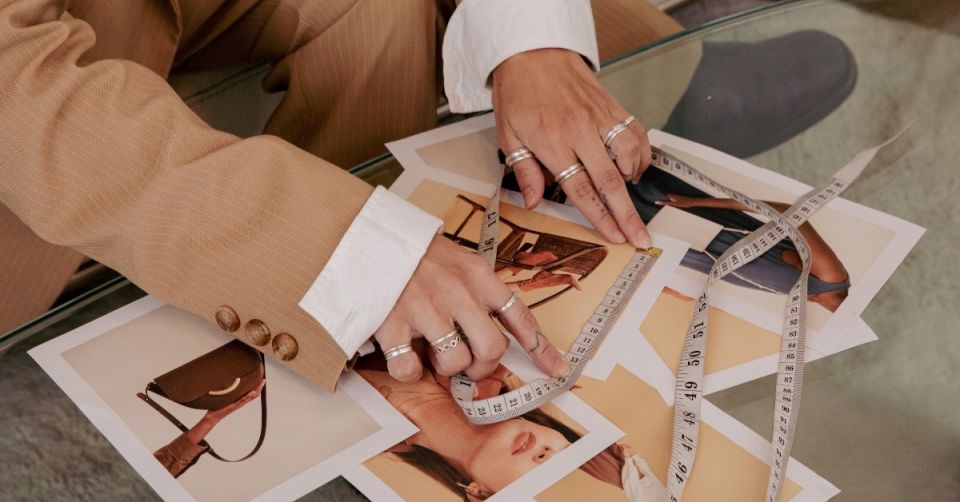The Future of Fashion Careers: Key Trends Shaping the Industry in 2025

The fashion industry is always changing, but the changes we’re seeing heading into 2025 are unlike anything we’ve experienced before. At u&i, a recruitment agency specialising in fashion and textiles, we’re continuously tracking how new technologies, shifting consumer behaviours and changing global priorities are transforming careers within the industry. Whether you’re a recent graduate, an experienced professional, or someone looking to pivot within fashion, understanding these trends will help you stay ahead of the curve and seize the right opportunities.
So, what should you expect from the future of fashion careers in 2025? Let’s explore the key trends continuing to shape the industry.
Sustainability Continues to Lead the Charge
Sustainability in fashion is far from a passing trend; it’s becoming a foundational principle that will define the future of the industry. In 2025, expect the demand for sustainable practices to grow even stronger. As the conversation around climate change intensifies, brands are under increasing pressure to adopt eco-friendly and ethical practices, both from consumers and regulators.
For prospective candidates, this means exciting opportunities in sustainable fashion, from designing with eco-friendly materials to working in supply chain management to ensure ethical sourcing. Brands will be looking for professionals who can not only understand sustainable materials but also develop strategies to reduce waste and emissions across production processes.
If sustainability is a passion of yours, now is the time to build your expertise. Courses on sustainable fashion, such as those offered by the London College of Fashion or Centre for Sustainable Fashion, will help you stay ahead. Make sure your portfolio or resume highlights your experience working with sustainable products or processes to make you more attractive to potential employers.
Tech-Driven Fashion Careers Are on the Rise
The integration of technology in fashion has been growing steadily, but by 2025, it will be fully ingrained in the way the industry operates. From artificial intelligence (AI) in design to virtual fashion shows, 3D garment rendering, and digital fashion for the metaverse, tech-driven careers are becoming the norm.
For designers, mastering digital tools like CLO 3D or TUKAcad will be a key asset. Those in marketing and retail will need to understand how AI can optimise inventory management, predict trends, and improve customer experiences online. Fashion tech is also expanding beyond design into areas like 3D printing, where professionals can create customisable products, reducing waste and overproduction.
One of the most exciting developments is the growth of virtual fashion —think fashion shows held in the metaverse or digital clothing bought for avatars. This new frontier in fashion opens up opportunities for tech-savvy professionals with an eye for design and an understanding of how virtual worlds function. If you’re not yet familiar with these technologies, now is the time to learn. A strong understanding of digital design, augmented reality (AR), and e-commerce tools can make you a key player in the future of fashion.
The Demand for Diversity and Inclusion Will Continue to Grow
The call for greater diversity and inclusion within the fashion industry is louder than ever, and by 2025, it will be more integrated into the fabric of companies than ever before. Not just in terms of race and gender, but also in terms of size, ability, and representation in fashion campaigns. Employers are seeking professionals who can bring diverse perspectives to the table, from design to marketing to management.
If you’re passionate about diversity, equity, and inclusion (DEI), now is the time to build your experience in this area. Whether it’s working with diverse teams, ensuring inclusive marketing strategies, or designing with accessibility in mind, DEI expertise will be a valuable asset. Many fashion brands will also look for employees who are well-versed in developing campaigns and products that cater to a more diverse and global audience.
The Role of E-Commerce and Data Analysis Will Expand
With more consumers shopping online than ever before, the role of e-commerce in fashion will continue to dominate, especially as the boundaries between digital and physical shopping experiences blur. By 2025, companies will rely heavily on data analysis to drive decisions, whether it’s identifying emerging trends or optimising pricing strategies.
For professionals in e-commerce, marketing, and buying, the ability to analyse consumer data and adapt quickly will be critical. Brands will increasingly seek individuals with a deep understanding of consumer behaviour, data-driven decision-making, and personalisation strategies to deliver tailored shopping experiences.
Flexible and Remote Fashion Jobs Are the New Norm
The work-from-home shift during the pandemic fundamentally changed how fashion companies operate, and many of these changes will persist into 2025. More fashion brands are embracing flexible working arrangements, whether it’s hybrid roles or fully remote positions, especially in areas like design, marketing, and customer service.
As the fashion industry adapts to new ways of working, professionals will need to develop the ability to collaborate effectively in digital spaces. Communication tools, project management software, and virtual collaboration platforms will become as essential as sketchbooks and sewing machines. If you’re looking to thrive in this new era of work, being comfortable in virtual environments and managing remote teams will be important skills to have.
New Roles and Career Pathways Will Emerge
As the fashion industry embraces technology, sustainability, and inclusivity, new career opportunities will continue to emerge. By 2025, we’ll see more roles in areas like AI-assisted design, circular economy strategy, and digital marketing for virtual fashion. These emerging roles will require a blend of technical expertise and creativity, offering exciting pathways for professionals who can understand both worlds.
At u&i, we’re always looking for candidates who are innovative and ready to take on these evolving roles. If you’re flexible, curious, and eager to learn, the future of fashion careers offers limitless potential.
Final Thoughts
The future of fashion careers in 2025 is bright and full of opportunities. By focusing on sustainability, embracing technology, championing diversity, and refining your e-commerce and data skills, you’ll be well-positioned to thrive in an ever-evolving industry.
If you’re ready to take the next step in your fashion career, explore our current vacancies or reach out to the u&i team for personalised career advice. The future of fashion is waiting—are you ready to shape it?


